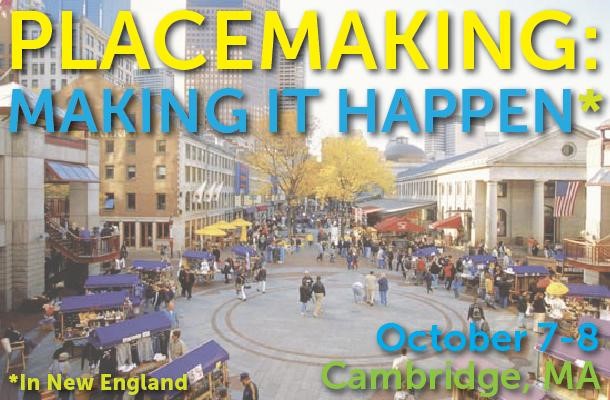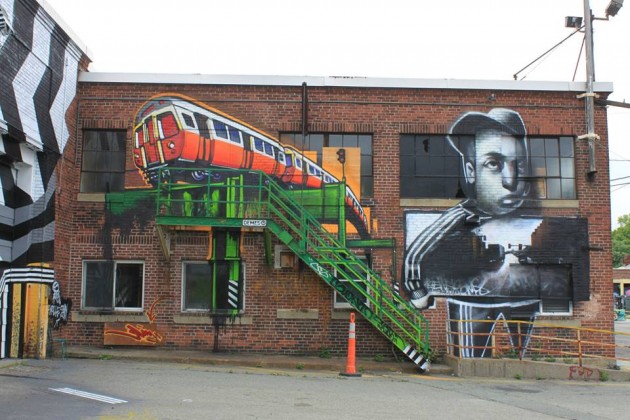This op-ed appeared in the Fall River Herald News on May 22, 2013. For more information, see the Alliance’s Zoning Reform Campaign page.
By André Leroux and State Sen. Dan Wolf
Massachusetts has always been a source of innovative ideas that change the world, from the revolutionary principles that gave birth to democracy to the technological concepts that founded Facebook. But when it comes to our zoning, subdivision and planning laws, our state is still stuck a half century behind the curve.
Yet that could change. There is a growing movement to reform the state’s antiquated and confusing laws that govern development. We aim to create a more predictable set of rules that will encourage good planning and good projects so that our cities and towns can enjoy the kinds of walkable, vibrant places where people want to live and work. To be successful, we need to pass legislation pending on Beacon Hill that will simplify the zoning process for the benefit of municipalities, residents, and property owners in Fall River, the SouthCoast and throughout the commonwealth.
Current laws do not promote development that meets the needs of Massachusetts residents in 2013, much less in the years to come. We’re building fewer than half of the homes needed to house current residents, and we’re often building in ways that don’t use our land and resources responsibly. It’s time for some common sense that works in everyone’s interests.
Known as House Bill 1859 or “An Act Promoting the Planning and Development of Sustainable Communities,” our reform package has earned 58 co-sponsors since being introduced including Rep. Alan Silvia, D-Fall River, and Rep. Paul Schmid, D-Westport.
The proposal will make it quicker and cheaper for communities to decide where to sensibly grow by making master planning optional and more flexible. It encourages communities to establish districts for prompt permitting of housing and commercial growth while adopting environmental protections. With our proposal, the permitting process would become more rational for developers and the community. Instead of navigating a gamut of local boards individually, developers of major projects could submit a common application to all boards simultaneously and be granted a joint public hearing within 45 days of filing.
Let’s take development fights out of the courts. This bill brings our zoning law into the 21st century and clarifies many gray areas of the law so that everyone understands what they mean. A few examples include: inclusionary zoning to encourage affordable housing, impact fees to help offset the costs of development, and form-based codes that promote good design. Furthermore, we eliminate several loopholes that make it possible for developers or municipalities to game the system. Our legislation would create reasonable and standardized zoning protections once a building permit, special permit, or subdivision plan is approved. In the event of a disagreement on land use proposals, there will be an opportunity for a neutral facilitator to come in and settle the dispute instead of enduring costly and time-consuming court battles. The appeal process is streamlined to save everyone time and money.
Our antiquated zoning laws hurt our environment as well. Every day in Massachusetts, 22 acres of forest and farmland are converted primarily to low-density residential sprawl. This is due in part to “Approval Not Required” (ANR) development, which is almost unregulated. We are the only state in the nation that allows this. Our reform proposal would enable a city or town to replace that ANR with an expedited review process to minimize haphazard development and preserve important landscapes in our communities. There are also provisions to encourage the sensitive placement of development as well as recharge our aquifers to reduce flooding.
One of Massachusetts’ greatest strengths is the diversity of its cities and towns. There are dense urban areas like Somerville, seaside communities like Gloucester, and rural towns like Brimfield. Under these proposed new laws, communities on the SouthCoast and in all areas of the state will have the tools they need to lay out their vision for the future while preserving the character that makes them unique. Increasing our stock of moderately priced and affordable homes in a responsible, predictable manner will keep our talented residents here while attracting new people to Massachusetts, strengthening not only our individual towns but the entire commonwealth.
The zoning reform bill is driven by the collective expertise of dozens of organizations including the Massachusetts Smart Growth Alliance, the Massachusetts Public Health Association, the City Solicitors and Town Counsel Association, the Massachusetts Association of Conservation Commissions, the Massachusetts Association of Planning Directors and many other groups that care about growth and quality of life in our communities.
We welcome a public discussion about how to improve development in Massachusetts and we invite you to learn more at the Massachusetts Smart Growth Alliance website and contact us. We hope you will agree that a more fair and predictable zoning and permitting process will create an attractive environment for investment in our state’s great places.
André Leroux is the executive director of the Massachusetts Smart Growth Alliance. State Sen. Dan Wolf represents the Cape and the Islands. He also founded Cape Air and Nantucket Airlines, which now employs nearly 1,000 people.


